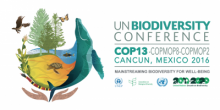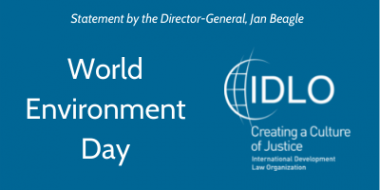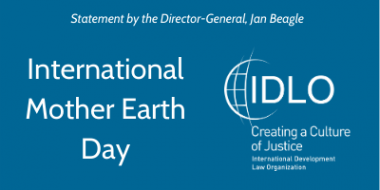IDLO and partners to host side events at COP 13
From December 7 - 14, 2016, almost 10,000 representatives from the 196 Parties of the Convention on Biological Diversity (CBD) as well as NGOs, indigenous and local communities, international organizations, and other stakeholders will meet in Cancun, Mexico, for the 13th meeting of the Conference of the Parties - commonly known as














